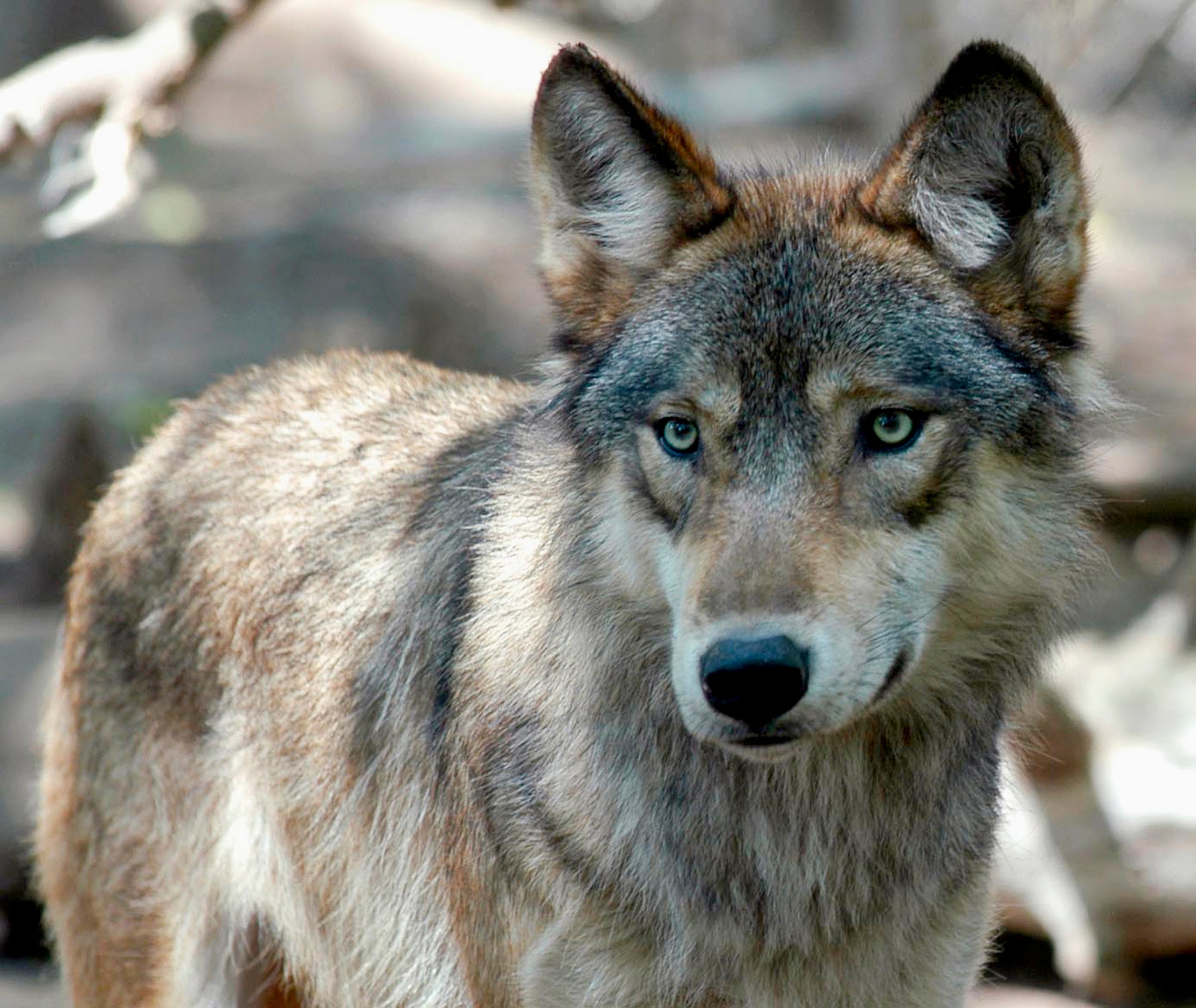Wisconsin opens early wolf hunt after hunter group sued
Wisconsin wildlife officials have opened a wolf season after hunting advocates sued to move the start date up from November amid fears that the Biden administration might restore protections for the animals

Your support helps us to tell the story
From reproductive rights to climate change to Big Tech, The Independent is on the ground when the story is developing. Whether it's investigating the financials of Elon Musk's pro-Trump PAC or producing our latest documentary, 'The A Word', which shines a light on the American women fighting for reproductive rights, we know how important it is to parse out the facts from the messaging.
At such a critical moment in US history, we need reporters on the ground. Your donation allows us to keep sending journalists to speak to both sides of the story.
The Independent is trusted by Americans across the entire political spectrum. And unlike many other quality news outlets, we choose not to lock Americans out of our reporting and analysis with paywalls. We believe quality journalism should be available to everyone, paid for by those who can afford it.
Your support makes all the difference.Wisconsin wildlife officials opened a wolf season Monday after hunting advocates sued to move the start date up from November amid fears that the Biden administration might restore protections for the animals.
The hunt will run through Sunday across six management zones. The DNR set the kill limit at 200 animals, with 119 allocated to the state and the other 81 allocated to Wisconsin's Chippewa tribes as per treaty agreements. However, the Chippewa regard the wolf as sacred and will not hunt it, leaving the working kill limit at 119.
The DNR estimates that there are at least 1,000 wolves in Wisconsin and its aim is to maintain a population of 350. The agency issued 2,380 permits, or 20 times its kill limit for non-tribal members. Department officials said Monday that they received 27,151 applications.
Wisconsin law requires the DNR to run a wolf hunt from the beginning of November through the end of February. But wolves have been bouncing on and off the federal endangered species list for the past decade. The DNR ran its first hunt in 2012 after the Obama administration removed protections and ran two more before a federal judge re-listed the animals in late 2014.
The Trump administration delisted wolves in most of the U.S. again in January. The DNR was preparing to hold a season in November, but a Kansas-based hunting advocacy group, Hunter Nation, won an order from a Jefferson County judge that forced the agency to hold a season before the end of February. The group argued that President Joe Biden s administration could restore protections for wolves before November and deny hunters a season.
Wolf management has been one of the most contentious outdoor issues that Wisconsin has grappled with over the past 20 years.
Northern Wisconsin farmers and residents say wolves kill their livestock and pets. According to DNR data, the state paid a total of $189,748 in 2019 to farmers and dog owners to compensate them for losses to wolves. It paid out $144,509 in 2018 and $102,600 in 2017.
Conservationists counter that the wolf population isn't stable enough to support hunting them and that the animals are too beautiful to allow it.
Legislators in neighboring Minnesota have introduced dueling bills that would ban hunting wolves in that state and mandate a season. Maureen Hackett, founder and president of Howling for Wolves a Minnesota-based wolf advocacy organization, issued a statement Monday condemning the Wisconsin hunt.
“As apex predators, (wolves) have the social and biological structure to control their own pack sizes and numbers," she said. “The political decision to remove federal Endangered Species Act protections for the wolf is against public sentiment and sound science.”
An animal rights group calling itself Wolf Patrol planned to monitor hunters across the northern management zones starting Monday. In 2016, then-Republican Gov. Scott Walker signed a bill prohibiting people from bothering hunters in the woods in response to allegations that Wolf Patrol members followed and filmed wolf hunters in Wisconsin and Montana in 2014.
The Wisconsin DNR still plans to go ahead with another season starting in November.
___
This story has been updated to correct that the DNR issued 2,380 permits, not 4,000.
___
Follow Todd Richmond on Twitter: https://twitter.com/trichmond1
Subscribe to Independent Premium to bookmark this article
Want to bookmark your favourite articles and stories to read or reference later? Start your Independent Premium subscription today.